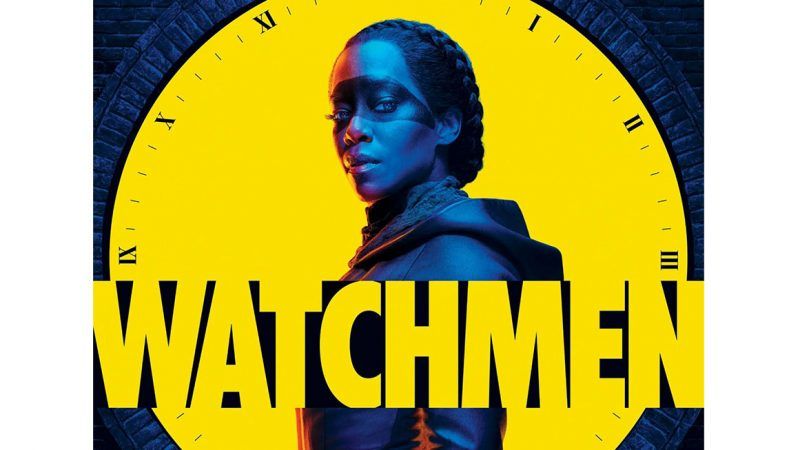Watchmen
The new HBO show explores how systems of authority fail those for whom they are ostensibly responsible.

In the final pages of the original Watchmen, antagonist Adrian "Ozymandias" Veidt asks whether his insane but well-intentioned mass casualty attack on New York City was worth it "in the end." Dr. Manhattan—a glowing blue demigod and the only true superhero of the 1987 graphic novel—responds, "nothing ever ends."
More than 30 years later, Dr. Manhattan's prediction has come true for Watchmen itself with HBO's new nine-episode television sequel to the original comic, helmed by Damon Lindelof (Lost, The Leftovers). Lindelof's version is as thematically linked to his own TV history as it is to the source material: Hardcore Lost fans will recall his use of constant flashbacks and time jumps with fondness (and perhaps a touch of PTSD).
The latest to don the mask of a costumed hero in this series is Angela Abar (Regina King), a Tulsa police officer with a secret identity, a secret past, and a secret…well, she has a lot of secrets. A murder brings Abar into the orbit of Laurie Blake (Jean Smart), a cynical FBI agent and former vigilante. Inevitably, Dr. Manhattan and Ozymandias are drawn into the story as well, though the latter has a particularly circuitous journey to the present.
Watchmen was always about the road to hell and the good intentions of the people who paved it. Do superweapons keep people safe or make them targets of even more powerful superweapons? The new series continues these themes brilliantly, substituting racial unrest for the original Cold War tensions but continuing to explore how systems of authority fail those for whom they are ostensibly responsible.


Show Comments (11)